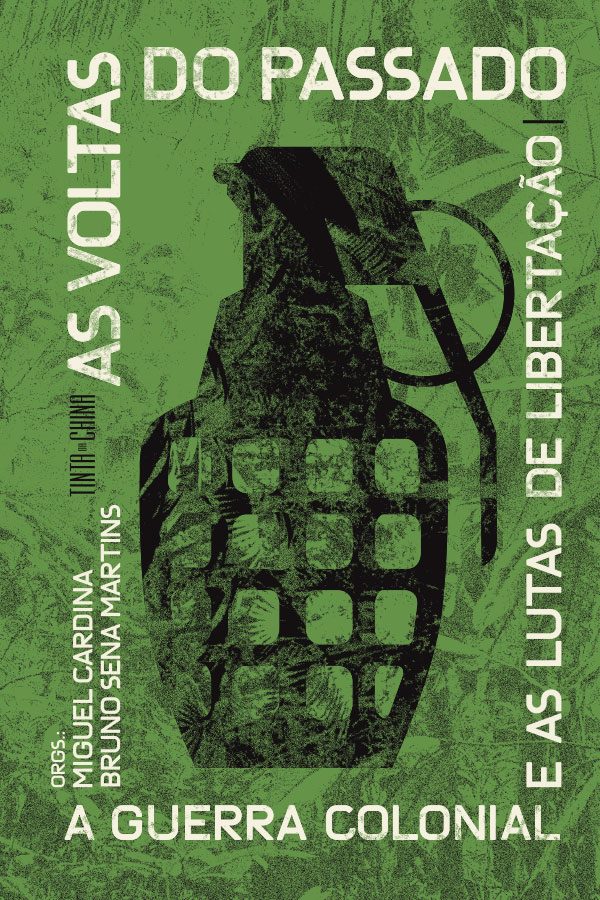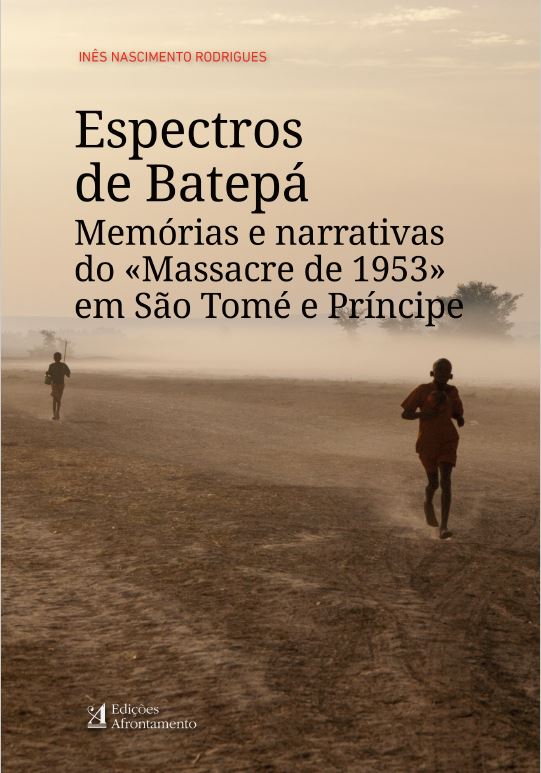Apresentação de livros
«As Voltas do Passado» de Miguel Cardina e Bruno Sena Martins (orgs.) e «Espectros de Batepá» de Inês Nascimento Rodrigues
11 de agosto de 2018, 22h00
43.ª Feira do Livro da Nazaré, Centro Cultural da Nazaré
Apresentação
A apresentação desta obra, com chancela das Edições Tinta da China, será efetuada por Miguel Cardina, Inês Nascimento Rodrigues e Vasco Martins (CES)
Colonialismo e Independências: As Memórias que Não se Podem Perder
Mais de 40 anos passados, o que sabemos sobre a guerra colonial e as lutas de libertação? O que se perdeu entre o silenciamento de amplas vertentes do conflito? Nos diferentes lugares, que memórias persistem da guerra que mudou a face de Portugal e que foi crucial para as independências de Angola, Cabo Verde, Guiné-Bissau, Moçambique e São Tomé e Príncipe?
A partir das datas marcantes da fase final do colonialismo, dezenas de autores de diferentes áreas do conhecimento questionam a história e o legado desses tempos de mudança. Nestas voltas de um passado feito de momentos celebrados e de segredos incómodos, desenha-se um outro modo de contar a memória de uma guerra com muitos lados.
____________________
Sinopse «"As voltas do passado" é um livro sobre o lugar da memória e do esquecimento da guerra colonial e das lutas de libertação na definição do Portugal democrático e pós colonial, e na constituição dos antigos territórios africanos em estados independentes […]. Com efeito, uma coisa é lembrar a guerra na antiga metrópole, onde hoje figura como espectro de um império tutelado por um longo regime ditatorial, outra é lembrá la nas antigas colónias que, através dela, obtiveram a independência política […]. Os eventos selecionados têm em comum o facto de terem produzido um lastro memorial presente em discursos e monumentos públicos, em mobilizações sociais, em apropriações políticas, em silêncios mais ou menos persistentes que nos contam como se foram modelando as vidas futuras desses eventos passados.» [Introdução].
«"As voltas do passado" é um livro sobre o lugar da memória e do esquecimento da guerra colonial e das lutas de libertação na definição do Portugal democrático e pós colonial, e na constituição dos antigos territórios africanos em estados independentes […]. Com efeito, uma coisa é lembrar a guerra na antiga metrópole, onde hoje figura como espectro de um império tutelado por um longo regime ditatorial, outra é lembrá la nas antigas colónias que, através dela, obtiveram a independência política […]. Os eventos selecionados têm em comum o facto de terem produzido um lastro memorial presente em discursos e monumentos públicos, em mobilizações sociais, em apropriações políticas, em silêncios mais ou menos persistentes que nos contam como se foram modelando as vidas futuras desses eventos passados.» [Introdução].
Textos de: Aida Freudenthal, Albert Farré, Aniceto Afonso, André Caiado, Amélia Neves de Souto, Ângela Campos, Ângela Benoliel Coutinho, Bruno Sena Martins, Carlos de Matos Gomes, Celeste Fortes, Cláudia Castelo, Cláudio Alves Furtado, Diana Andringa, Elsa Peralta, Fidel Reis, Gerhard Seibert, Helena Wakim Moreno, Inês Nascimento Rodrigues, Isabel Maria Cortesão Casimiro, José Neves, José Pedro Monteiro, Julião Soares Sousa, Justin Pearce, Leonor Pires Martins, Leopoldo Amado, Manuel Loff, Marcelo Bittencourt, Margarida Calafate Ribeiro, Maria Benedita Basto, Maria da Conceição Neto, Maria José Lobo Antunes, Maria Paula Meneses, Michel Cahen, Miguel Bandeira Jerónimo, Miguel Cardina, Miguel de Barros, Mustafah Dhada, Nélida Brito, Odete Semedo, Paulo Lara, Raquel Ribeiro, Redy Wilson Lima, Rita Rainho, Rui Bebiano, Sílvia Roque, Sheila Khan, Susana Martins, Teresa Cruz e Silva, Tiago Matos Silva, Vasco Martins e Verónica Ferreira
___________________
Sinopse
Organização: Biblioteca da Nazaré

